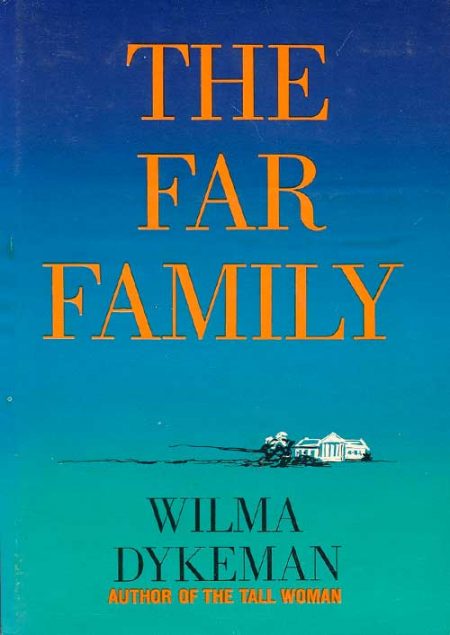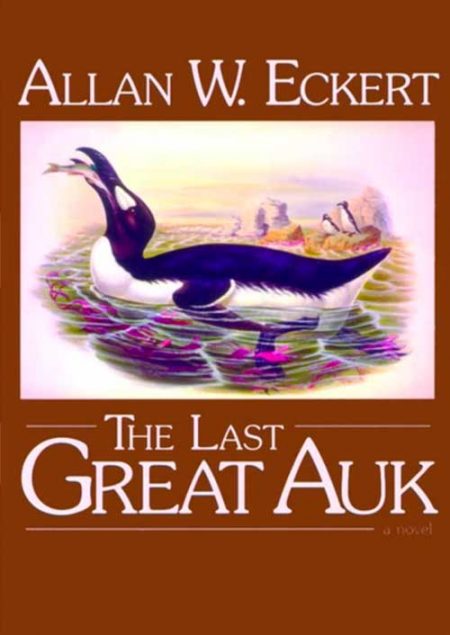-
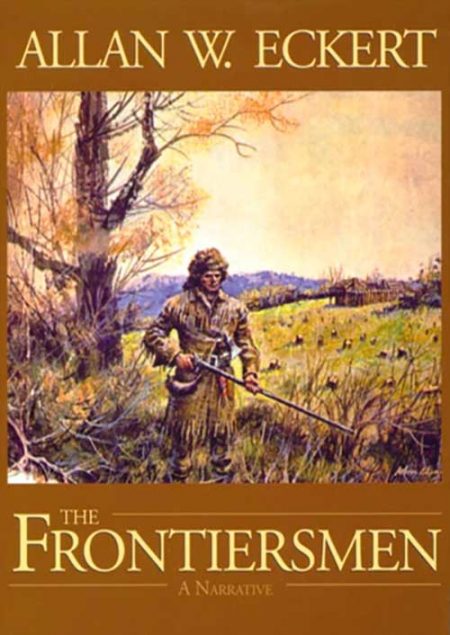 The Winning of America Series: Book 1 of 6 The frontiersmen were a remarkable breed of men. They were often rough and illiterate, sometimes brutal and vicious, often seeking an escape in the wilderness of mid-America from crimes committed back east. In the beautiful but deadly country which would one day come to be known as West Virginia, Kentucky, Michigan, Ohio, Indiana, and Illinois, more often than not they left their bones to bleach beside forest paths or on the banks of the Ohio River, victims of Indians who claimed the vast virgin territory and strove to turn back the growing tide of whites. These frontiersmen are the subjects of Allan W. Eckert's dramatic history. Researched for seven years, The Frontiersmen is the first in Eckert's "The Winning of America" series. SOFTBACK & HARDBACK By Allan Eckert
The Winning of America Series: Book 1 of 6 The frontiersmen were a remarkable breed of men. They were often rough and illiterate, sometimes brutal and vicious, often seeking an escape in the wilderness of mid-America from crimes committed back east. In the beautiful but deadly country which would one day come to be known as West Virginia, Kentucky, Michigan, Ohio, Indiana, and Illinois, more often than not they left their bones to bleach beside forest paths or on the banks of the Ohio River, victims of Indians who claimed the vast virgin territory and strove to turn back the growing tide of whites. These frontiersmen are the subjects of Allan W. Eckert's dramatic history. Researched for seven years, The Frontiersmen is the first in Eckert's "The Winning of America" series. SOFTBACK & HARDBACK By Allan Eckert -
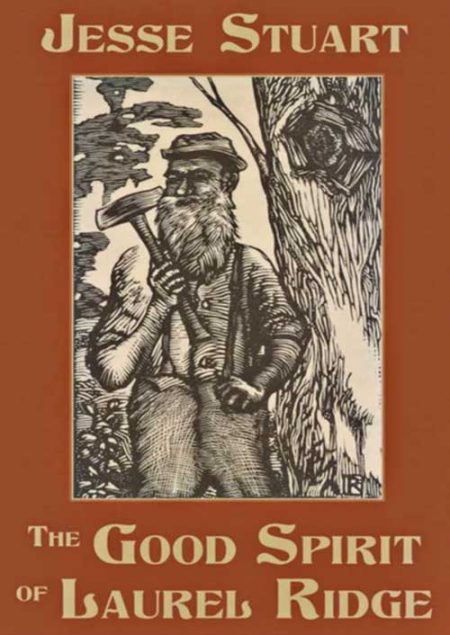 In The Good Spirit of Laurel Ridge, Jesse Stuart provides a tale of the Kentucky hill country which constantly excites, amuses, and amazes. The central character of this book is Theopolis Akers, "Old Opp" to his friends, the hermit of Laurel Ridge who is recognized as one of Stuart's most colorful character creations. Hermit, squatter, steadfast believer in the world of the spirits (sperets, he calls them), "Old Opp" lives a simple life atop deserted Laurel Ridge. He spends his days tilling his small patch of corn, gathering roots and nuts, or fishing with his bow and arrow. By night he sits on his porch, chews calmus weed, and listens to the wind blowing through the horse-hair harp strung up on the cabin wall. If he wants company, there is always his hound dog to talk to or various spirits to commune with including his dead wife, Beadie. By Jesse Stuart
In The Good Spirit of Laurel Ridge, Jesse Stuart provides a tale of the Kentucky hill country which constantly excites, amuses, and amazes. The central character of this book is Theopolis Akers, "Old Opp" to his friends, the hermit of Laurel Ridge who is recognized as one of Stuart's most colorful character creations. Hermit, squatter, steadfast believer in the world of the spirits (sperets, he calls them), "Old Opp" lives a simple life atop deserted Laurel Ridge. He spends his days tilling his small patch of corn, gathering roots and nuts, or fishing with his bow and arrow. By night he sits on his porch, chews calmus weed, and listens to the wind blowing through the horse-hair harp strung up on the cabin wall. If he wants company, there is always his hound dog to talk to or various spirits to commune with including his dead wife, Beadie. By Jesse Stuart -
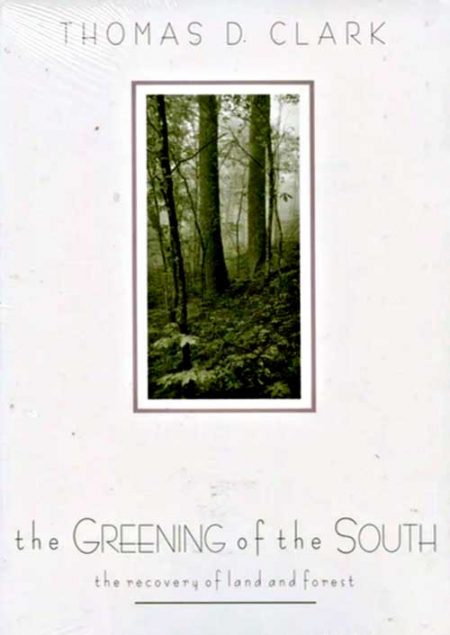 The region that ultimately became and remains today the South was originally a land of forests. Most of the species of trees that were native to North America flourished in the the South. For more than three centuries after the coming of the white man the southern forests gave way to agriculture and to the ravages of the lumber industry. But in the twentieth century, and largely since World War II, southerners and their industries have turned to controlled forestry and tree farming as being among the region’s most rewarding enterprises. Thus the recent decades have seen a remarkable new “greening of the South” By Thomas D. Clark
The region that ultimately became and remains today the South was originally a land of forests. Most of the species of trees that were native to North America flourished in the the South. For more than three centuries after the coming of the white man the southern forests gave way to agriculture and to the ravages of the lumber industry. But in the twentieth century, and largely since World War II, southerners and their industries have turned to controlled forestry and tree farming as being among the region’s most rewarding enterprises. Thus the recent decades have seen a remarkable new “greening of the South” By Thomas D. Clark -
 The Hunters of Kentucky: A Narrative History of America’s First Far West, 1750-1797 covers a wide range of frontier existence, from daily life and survival to wars, exploits, and even flora and fauna. The pioneers and their lives are profiled in biographical sketches, giving a rich sampling of the personalities involved in the United States' westward expansion. Author Ted Franklin Belue's colorful, vivid prose brings these long-forgotten frontiersmen to life. HARDBACK VERSION By Ted Franklin Belue
The Hunters of Kentucky: A Narrative History of America’s First Far West, 1750-1797 covers a wide range of frontier existence, from daily life and survival to wars, exploits, and even flora and fauna. The pioneers and their lives are profiled in biographical sketches, giving a rich sampling of the personalities involved in the United States' westward expansion. Author Ted Franklin Belue's colorful, vivid prose brings these long-forgotten frontiersmen to life. HARDBACK VERSION By Ted Franklin Belue -
Out of stock
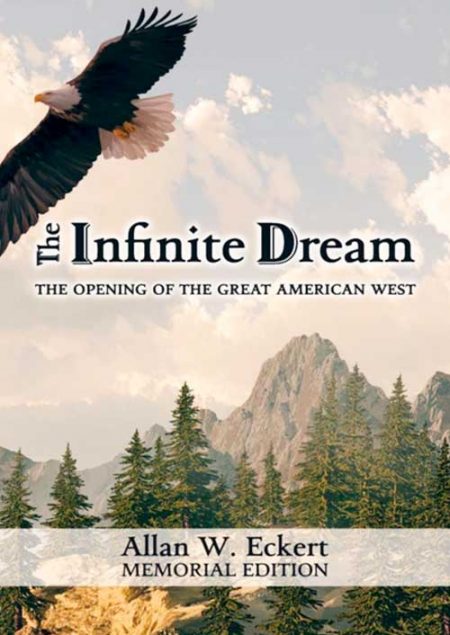 Winning of the West: Book 2 The Infinite Dream: The Opening of the Great American West, told with all the historical detail which made Allan W. Eckert famous, explores America’s westward expansion beyond the Mississippi River, 1834-1848. In this period before the Civil War, restless pioneers were casting eager eyes on the lands between the Mississippi River and the Pacific Ocean. HARDBACK By Allan Eckert
Winning of the West: Book 2 The Infinite Dream: The Opening of the Great American West, told with all the historical detail which made Allan W. Eckert famous, explores America’s westward expansion beyond the Mississippi River, 1834-1848. In this period before the Civil War, restless pioneers were casting eager eyes on the lands between the Mississippi River and the Pacific Ocean. HARDBACK By Allan Eckert -
Out of stock
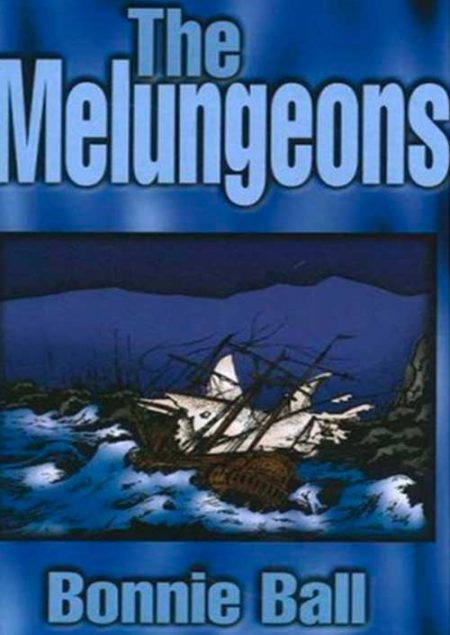 This thorough ethnological study is both scholarly and highly readable. In it the author objectively traces the roots of one of America’s more obscure peoples, the Melungeons. SOFTBACK VERSION By Bonnie Ball
This thorough ethnological study is both scholarly and highly readable. In it the author objectively traces the roots of one of America’s more obscure peoples, the Melungeons. SOFTBACK VERSION By Bonnie Ball -
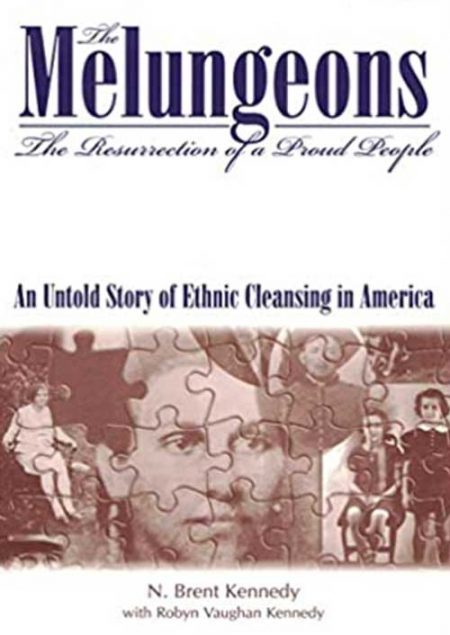 As early as 1654, English and French explorers in the southern Appalachians reported seeing dark-skinned, brown- and blue-eyed, and European-featured people speaking broken Elizabethan English, living in cabins, tilling the land, smelting silver, practicing Christianity, and, most perplexing of all, claiming to be Portyghee. Declared free persons of color in the late 1700s by the English and Scottish-Irish immigrants, the Melungeons, as they were known, were driven off their lands and denied voting rights, education, and the right to judicial process. The law was enforced mercilessly and sometimes violently in the resoundingly successful effort to totally disenfranchise these earliest American settlers. SOFTBACK VERSION By Brent Kennedy
As early as 1654, English and French explorers in the southern Appalachians reported seeing dark-skinned, brown- and blue-eyed, and European-featured people speaking broken Elizabethan English, living in cabins, tilling the land, smelting silver, practicing Christianity, and, most perplexing of all, claiming to be Portyghee. Declared free persons of color in the late 1700s by the English and Scottish-Irish immigrants, the Melungeons, as they were known, were driven off their lands and denied voting rights, education, and the right to judicial process. The law was enforced mercilessly and sometimes violently in the resoundingly successful effort to totally disenfranchise these earliest American settlers. SOFTBACK VERSION By Brent Kennedy -
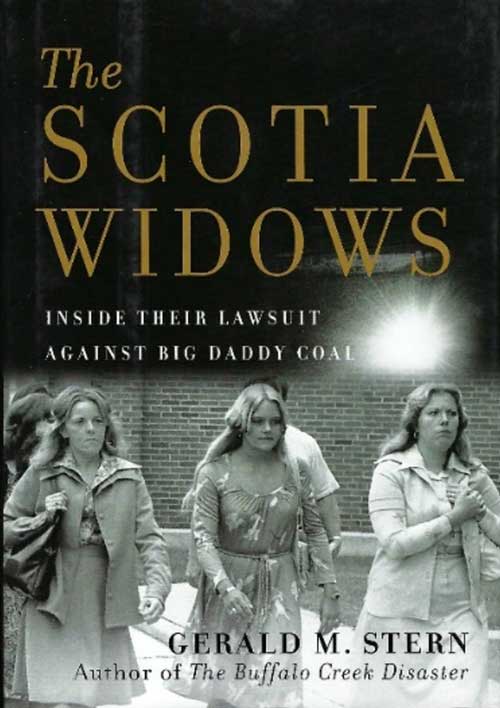 The Scotia Widows: Inside Their Lawsuit Against Big Daddy Coal On March 9, 1976, a violent explosion, fueled by high concentrations of methane gas and coal dust, ripped through the Scotia mine in the heart of Eastern Kentucky coal country. The blast killed fifteen miners who were working nearly three and a half miles underground; two days later, a second explosion took the lives of eleven rescue workers. For the miners’ surviving family members, the loss of their husbands, fathers, and sons was only the beginning of their nightmare. By Gerald M. Stern
The Scotia Widows: Inside Their Lawsuit Against Big Daddy Coal On March 9, 1976, a violent explosion, fueled by high concentrations of methane gas and coal dust, ripped through the Scotia mine in the heart of Eastern Kentucky coal country. The blast killed fifteen miners who were working nearly three and a half miles underground; two days later, a second explosion took the lives of eleven rescue workers. For the miners’ surviving family members, the loss of their husbands, fathers, and sons was only the beginning of their nightmare. By Gerald M. Stern -
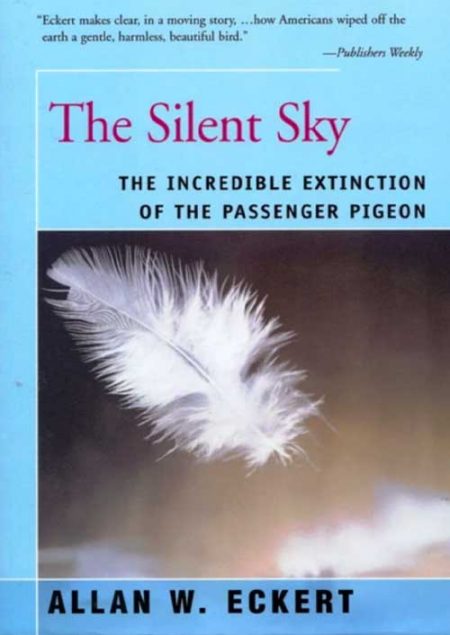 This nature novel, by following the hatching and lifetime experiences of the last know wild passenger pigeon, chronicles the life, natural history, and ultimate extinction of this species which was once the most abundant bird species in North America. The last wild bird was killed in 1900; the last captive bird died in 1914. By Allan Eckert
This nature novel, by following the hatching and lifetime experiences of the last know wild passenger pigeon, chronicles the life, natural history, and ultimate extinction of this species which was once the most abundant bird species in North America. The last wild bird was killed in 1900; the last captive bird died in 1914. By Allan Eckert


